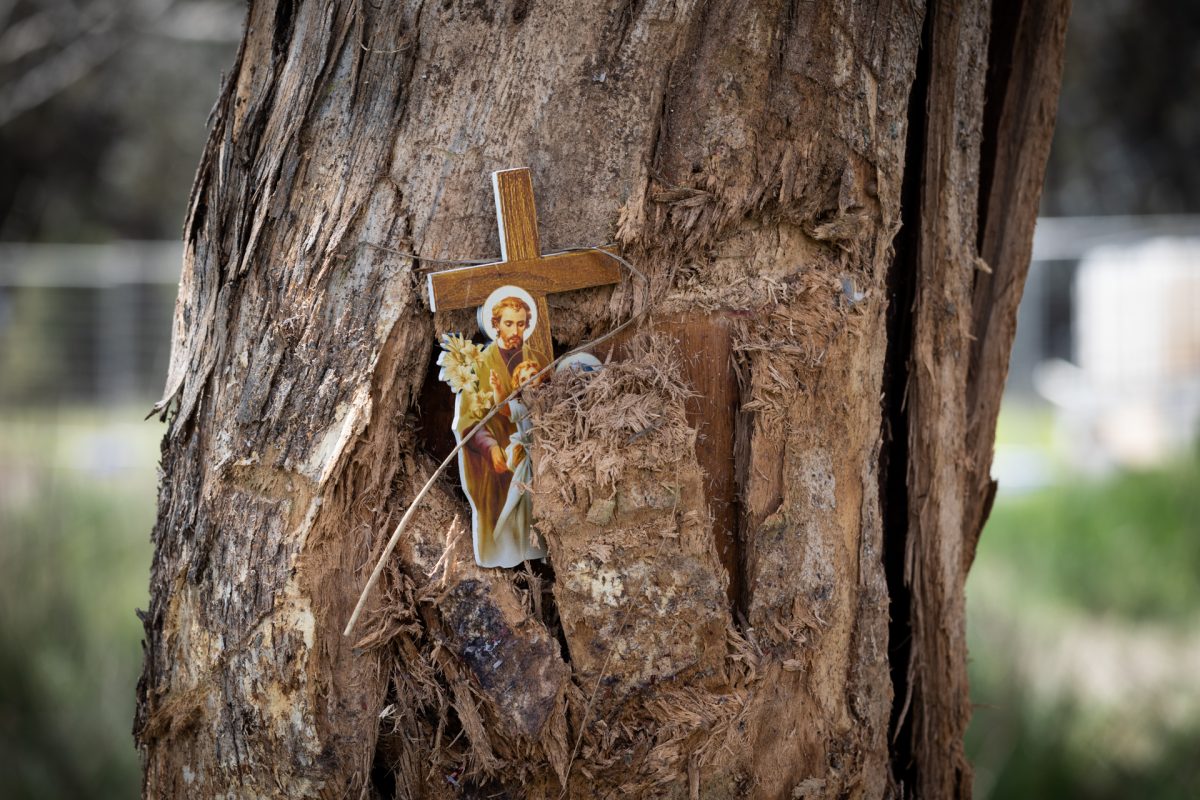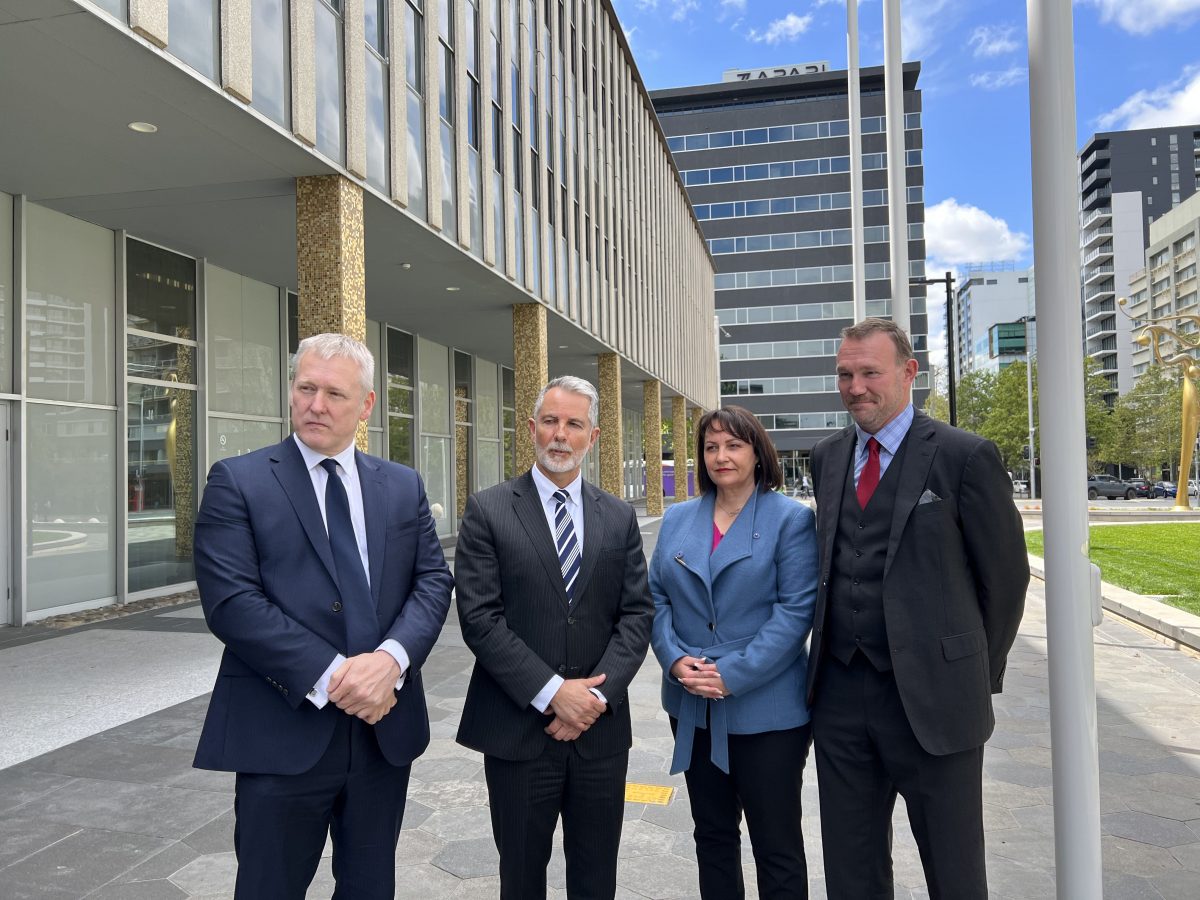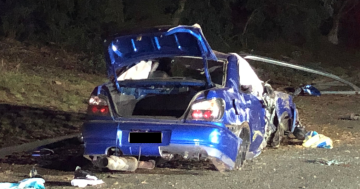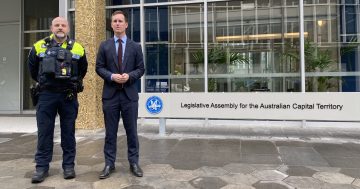
Eighteen people have lost their lives on the Territory’s roads this year. Photo: Michelle Kroll.
Dangerous drivers will face heftier fines, immediate licence disqualifications, more prison time and new penalties if proposed laws introduced by the ACT Government today (23 November) pass next year.
Cautiously optimistic, advocate Tom McLuckie has welcomed the changes but warned the legislature must look to close loopholes.
The raft of changes follows a spate of fatalities on the Territory’s roads and a highly publicised police campaign to target recidivist dangerous driving.
Licence suspensions and vehicle seizures would become more common under the proposed laws.
It’s the first major road safety announcement in recent months as the Government has come under increasing pressure from victims and advocates to act on the issue.
For example, a person could have their licence suspended for excessive speeds of greater than 45 km/h, or for refusing an oral fluid sample for the purposes of drug testing, or for reckless or furious driving.
Currently police don’t have the power to suspend licences for people who are caught driving dangerously, meaning they often catch them doing the same thing again.
Under the changes, police would also be able to use discretion to seize or impound vehicles for excessive speed and reckless or dangerous driving.
For the first time, anyone caught street racing repeatedly could face imprisonment as well as significantly increased fines of up to $16,000 for aggravated or recidivist offences.
That’s up from where it currently sits at $3200.
Transport Minister Chris Steel, who described the proposed laws as practical, said reviews of road transport penalties, which began earlier this year, would continue next year with more changes likely.
Mr Steel said the laws would bring the ACT in line with other jurisdictions.
Currently speed racing penalties are significantly lower than in other states and the ACT and the Northern Territory are the only two jurisdictions where imprisonment is not an option.
The Government is also seeking to close a loophole in the law by introducing a new offence for someone who is caught trespassing in a vehicle.
Attorney-General Shane Rattenbury said the Government had received feedback from police that they could prove a person had been present in someone else’s car, but couldn’t prove they had stolen it and therefore they could not be charged.
High-profile campaigns for stricter road safety penalties – as well as calls for a review into sentencing and bail – have been launched in recent months by Mr McLuckie.
The ACT Government has pushed back on calls for that review, with the Attorney-General arguing he does not see what purpose a “wholesale review” would serve.
But Mr McLuckie said while the legislation changes are a good start, the other end of the system – the courts – still needed to be looked at.
“I agree that this will have a bit of an impact … it’s good to see us brought into line with other jurisdictions,” he said.
“But it still doesn’t address that fundamental issue with recidivist behaviours where sentencing and bail come into play.”
Mr McLuckie welcomed the push to give police greater impound powers more so than licence suspensions.
He said it was important heavy fines actually worked as a deterrent, adding it wouldn’t be any good if a person could simply pay a fine off at $2 a month for years to come.
“You have to make sure you address loopholes which would stop people having their car impounded – like them saying it wasn’t their vehicle,” he said.
The swathe of reforms was also welcomed by the police union, the Australian Federal Police Association (AFPA).
AFPA President Alex Caruana said the changes had long been called for by serving officers in their attempt to tackle dangerous driving.

Blake Corney’s father Andrew, Opposition spokesperson for police Jeremy Hanson, Lachlan Seary’s mother Janice and Matthew McLuckie’s dad Tom have all called for change. Photo: Lottie Twyford.
Transport Minister Chris Steel today acknowledged the contribution of victims of dangerous driving – including Mr McLuckie, Andrew Corney and Camille Jago – who had all appeared before an ongoing inquiry into dangerous driving.
That inquiry will table its report soon and more changes are likely to follow.
Other reforms proposed by the laws sought to implement reforms suggested following the coronial inquest into the death of Mr Corney and Ms Jago’s four-year-old son Blake.
Blake was killed in 2018 when a truck crashed into the back of his family’s car on the Monaro Highway.
It was later found that the driver had sleep apnoea.
The Government will now begin work on a mandatory scheme that would mean health practitioners would have to inform the Government if they believed a patient was unfit to drive.
It’s expected the amendments will return to the Assembly next year for debate. The road safety amendments will go through a committee process first.




















